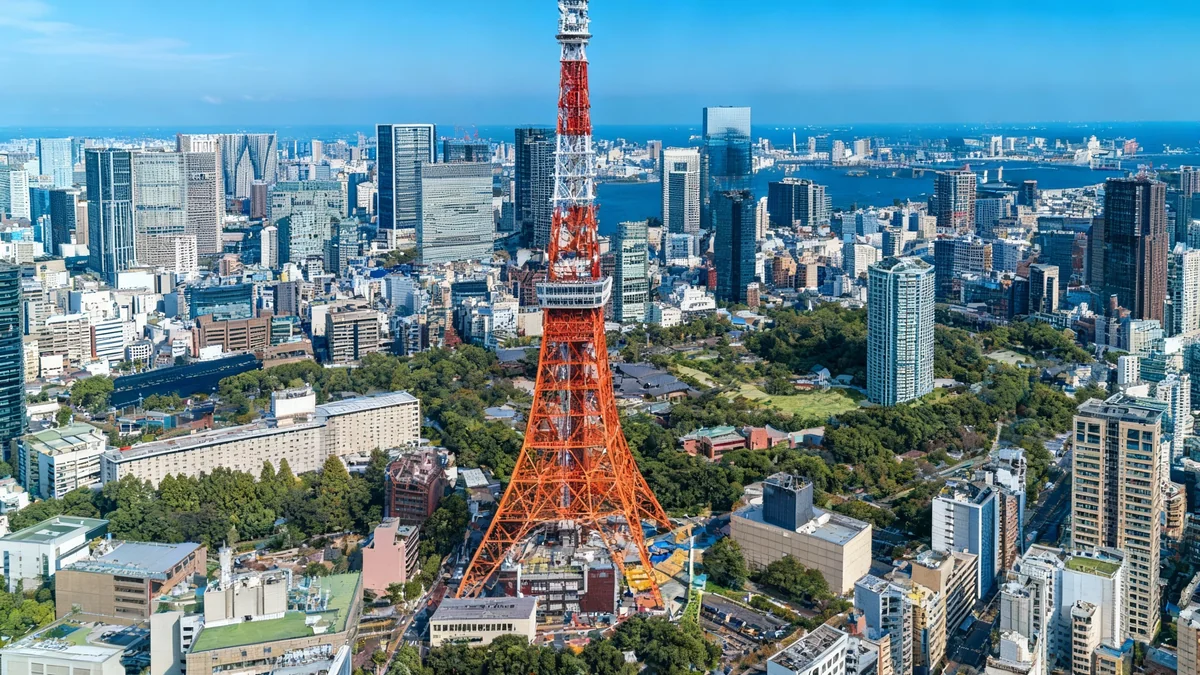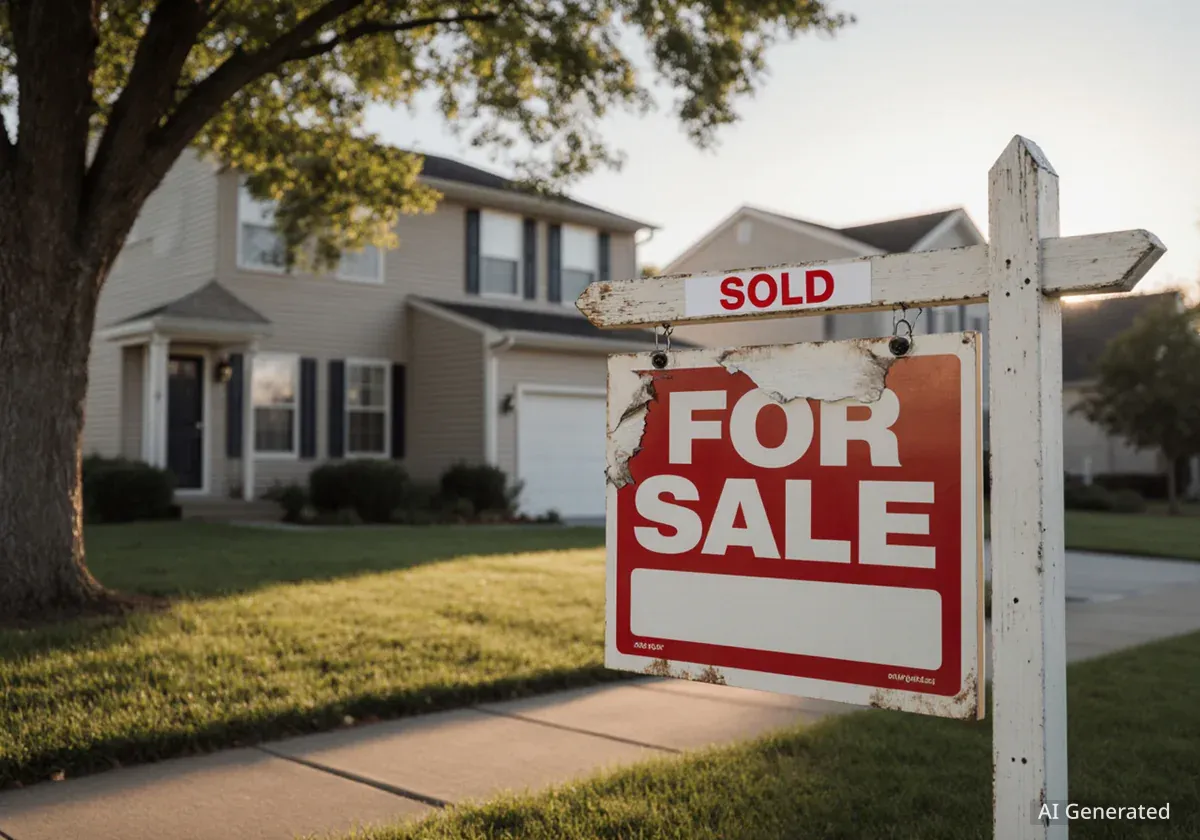A significant shift is underway in Japan's property market as investors from Singapore are increasingly purchasing real estate, driven by a weak yen, attractive rental yields, and a booming tourism sector. At some investment firms, Singaporeans have now surpassed Hong Kong buyers, accounting for as much as 50% of all transactions, a notable increase from 30% just last year.
This surge in activity is reshaping the landscape for foreign property ownership in Japan, with real estate agencies in Singapore reporting record attendance at seminars and rapid sales of Japanese residential units. The trend highlights a confluence of economic factors in both nations that makes Japanese property an appealing asset for Singaporean capital.
Key Takeaways
- Singaporean investors now represent the largest buyer group for some firms selling Japanese property, overtaking Hong Kong.
- The weak Japanese yen has increased purchasing power for Singapore dollar holders by approximately 12% over the last three years.
- High rental yields in cities like Osaka (around 5%) are a major draw compared to Tokyo (around 3%).
- Singapore's Additional Buyer's Stamp Duty (ABSD) is a significant factor pushing local investors to look overseas for property investments.
- Cities beyond Tokyo, especially Osaka, are gaining popularity due to lower property prices and strong tourism growth.
A Perfect Storm of Economic Incentives
The current rush into Japanese real estate is not accidental but the result of several powerful economic drivers aligning. For Singaporean buyers, the most significant factor is the sustained weakness of the Japanese yen against the Singapore dollar. This currency advantage provides a substantial discount on property acquisition costs.
Currently, S$1 exchanges for approximately 117.6 yen, which is about 12% more purchasing power than three years ago when Japan reopened its borders. This favorable exchange rate makes everything from a studio apartment in Osaka to a luxury unit in Tokyo more accessible.
Adding to the appeal are Japan's low borrowing costs. With a benchmark interest rate of 0.5%, financing a property in Japan is considerably cheaper than in many other developed markets. This contrasts sharply with rising interest rates elsewhere, which have dampened the appeal of traditional investment destinations like the UK and Australia.
Push and Pull Factors
The trend is fueled by both 'pull' factors from Japan and 'push' factors from Singapore. While Japan offers a weak yen and high yields, Singapore's domestic property market has become increasingly expensive for investors. The Additional Buyer’s Stamp Duty (ABSD) makes owning multiple properties in Singapore prohibitively costly, encouraging investors to seek opportunities abroad where such restrictions do not exist. Japan has no restrictions on foreign ownership of freehold real estate.
Beyond Tokyo: Osaka Emerges as an Investment Hotspot
While Tokyo has always been the premier destination for high-net-worth individuals seeking trophy assets in districts like Shibuya and Roppongi, a growing number of pragmatic investors are turning their attention to Osaka. Japan's third-largest city offers a compelling value proposition that is hard to ignore.
Property prices in Osaka are roughly 30% lower than in Tokyo, but the rental yields are significantly higher. Amous Lee, chief executive of FM Investment, estimates that investors can expect rental yields of around 5% in Osaka, compared to a more modest 3% in Tokyo.
"Ginza, Roppongi, Shibuya and Shinjuku will always be trophy assets for investors... but Singaporeans also look at numbers. With 3 per cent rental yield in Tokyo, they will turn to somewhere else."
Osaka's appeal is further enhanced by its booming tourism industry and major infrastructure developments. The city welcomed 14.6 million visitors last year and is preparing for a multi-billion-dollar casino resort set to open in 2029, which is expected to drive tourism and accommodation demand even higher.
Record Sales Highlight Market Demand
The demand is tangible. In July, Savills Singapore sold out all 60 units of a boutique development in Osaka, with half of the units purchased by Singapore-based buyers. Similarly, OrangeTee sold a two-bedroom apartment in Tokyo's Asakusa district for under S$500,000 at its inaugural Japanese property event.
How Property Firms are Responding
Real estate agencies have been quick to capitalize on the surging interest. Firms like FM Investment have dramatically increased the frequency of their sales events in Singapore, holding at least 15 this year alone. These events often see apartments being sold on the spot.
Strategic Partnerships
To meet the demand, Singaporean agencies are forming strategic alliances. OrangeTee recently announced a partnership with Tokyu Livable, one of Japan’s largest real estate firms. This collaboration aims to provide Singaporean buyers with a curated portfolio of properties, including newly renovated resale units that come with a 10-year warranty.
Justin Quek, deputy group chief executive of Realion, noted the importance of the secondary market. "In a lot of very good areas, there's no more land left for sale," he said. "So the only access is to get well-located units off the secondary market."
This sentiment reflects a maturing market where buyers are looking for quality and location, not just new builds. The partnership model allows Singaporean buyers to access a wider range of vetted properties with professional support.
Navigating the Risks and Complexities
Despite the optimistic outlook, industry experts advise caution. Investing in a foreign market comes with unique challenges that buyers must navigate carefully.
Regulatory Hurdles
One of the primary concerns is the regulation of short-term rentals, known as minpaku. These rules can vary significantly between cities and even districts.
- In some parts of Tokyo, private lodgings can only operate on weekends and holidays.
- Osaka is a designated special zone that allows year-round operation, but authorities recently announced plans to suspend new applications in response to resident complaints.
These changing regulations can impact the potential rental income from a property, and investors must stay informed.
Financing and Exit Strategy
Securing a mortgage can also be more complex. Loan-to-value ratios may be lower than what buyers are used to, typically ranging from 50% to 70%, requiring a larger capital outlay. Furthermore, while the weak yen is an advantage for purchasing, it can reduce returns when rental income or sales proceeds are converted back to Singapore dollars.
Finally, investors must consider their exit strategy. While Japan's resale market is becoming more active, it operates differently from Singapore's. Desmond Sim of Realion described it as "relatively tepid." However, the lack of restrictions on sales to foreigners and a large pool of buyers from China and Taiwan provide a degree of liquidity, particularly for smaller, well-located properties in major cities.





